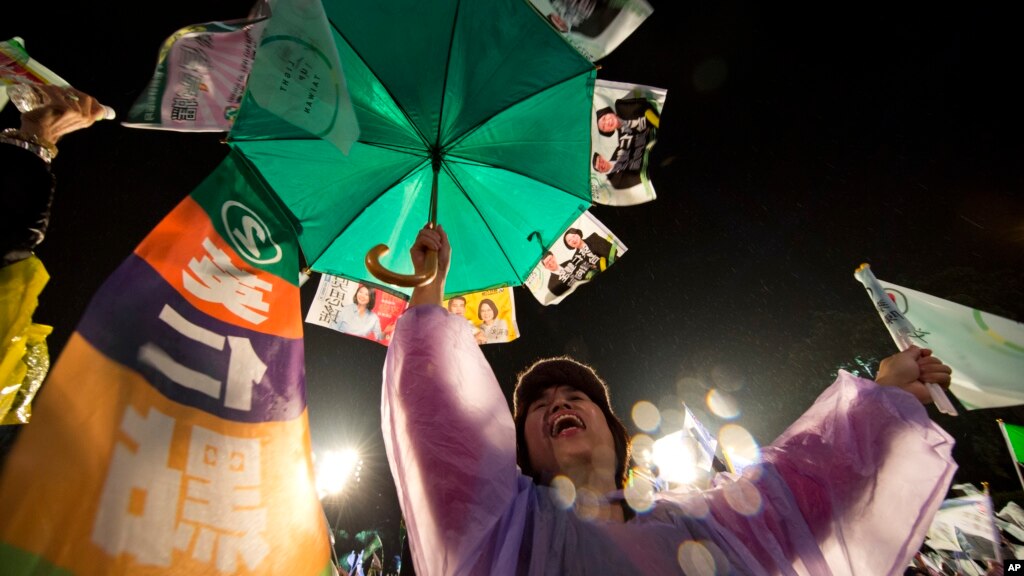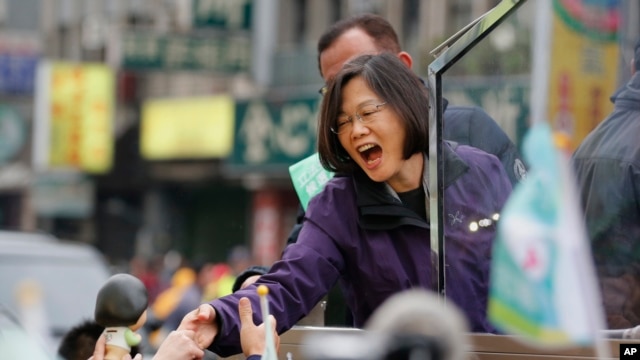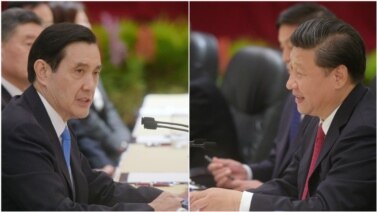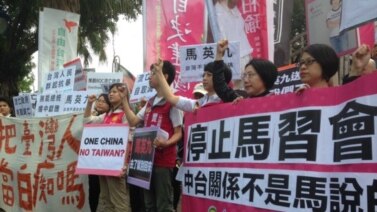
Taiwanese voters are choosing a new president Saturday after an intense campaign centered on the island's slowing economy.
They will also choose 113 lawmakers from more than 550 candidates.
Voters want higher salaries, less costly housing and more jobs. Both top candidates say they have solutions.
Taiwan slipped into recession in September. Export orders are the lifeblood of the island’s economy, and they have fallen for nine months.
Economic Issues Worry Taiwan’s Voters
Workers are unhappy. They say they cannot afford apartments in Taipei on wages as low as $600 a month. They also say they cannot pay to care for children and aging parents.
These issues have followed Taiwan’s two major party candidates as they have looked for support before Saturday’s elections. Taiwan’s opposition Democratic Progressive Party, or DPP, candidate is leading in public opinion polls.
Wang Yeh-lih is political science professor at National Taiwan University. He says voters are looking to the next president for a more comfortable living.
He said he believes the economy is a leading election issue as people demand higher incomes. They are seeking more job opportunities and are pressing other issues related to their personal finances. Wang adds that many people are unhappy with the Nationalist Party, or KMT.
Taiwan industrialized in the 1960s, but living standards lag those in Japan, South Korea and other places that took the same course. Still, land and labor cost enough to cause some investors to look in other places. This takes capital out of Taiwan and reduces the number of local jobs.
Current President Ma Ying-jeou disappointed voters by missing targets to raise salaries, lower unemployment and expand the economy.
Since 2008, Ma’s Nationalist Party government has sought to increase economic ties with China. The two sides have signed 23 deals aimed mainly at lifting trade, tourism and investment.
China and Taiwan have been rivals for nearly 70 years since the end of China’s civil war in 1949. China’s economy has grown to become the world's second largest.
Opposition Party Currently Leads in Polls

Opposition Democratic Progressive Party candidate Tsai Ing-wen leads in public opinion polls by at least eight percent over the Nationalist candidate. She has said she would move to help Taiwan's smaller enterprises.
She has promised them assistance in the domestic market and overseas. In May, her party suggested changing laws to increase wages and shorten work hours from 84 every two weeks to 40 per week.
She also has called for helping families by creating jobs through a network of neighborhood caretakers for children.
The opposition candidate also wants to build 200,000 units of affordable housing to ease worries about high land prices. Apartments in Taipei are priced similarly to other major world cities.
The Nationalist candidate, Eric Chu, has promised to raise the minimum wage slowly from $600 a month to almost $900 a month by 2020. Chu suggests opening neighborhood senior care centers to look after elderly adults when their adult children go to work.
A party spokesman says he would push for low-cost housing in existing units rather than building new ones.
Taiwan election officials are to announce the new president Saturday and the winner will take office in May. Current president Ma cannot run because his term is limited.
I'm Mario Ritter.
Ralph Jennings in Taipei reported on this story for VOANews.com Mario Ritter adapted his report for Learning English. Kathleen Struck was the editor.
Words in This Story
afford – v. to be able to pay for something
polls – n. an activity or study in which people are asked about their opinions or their plans to find out what most people think about specific issues
comfortable – adj. not causing pain, producing physical comfort
lag – v. to move more slowly than others
network – n. a group of people who are closely connected with each other


